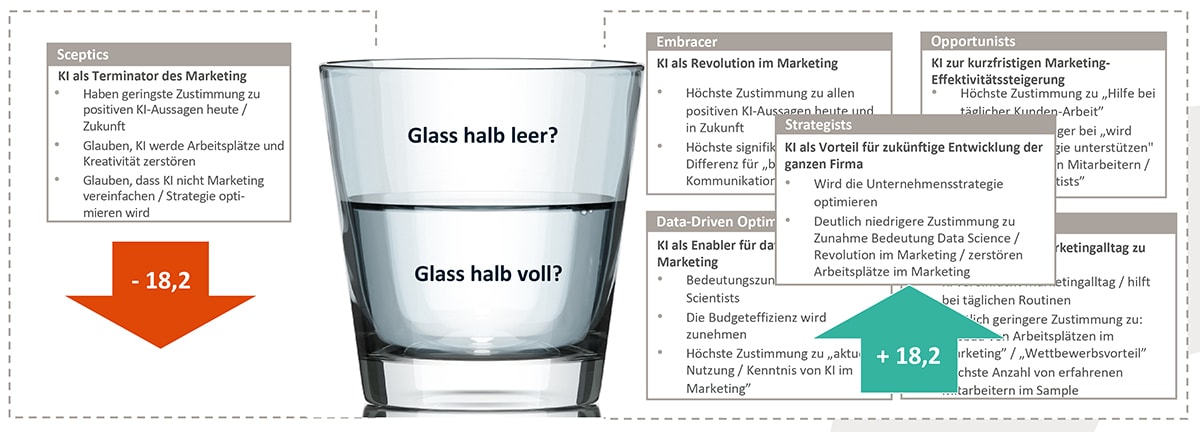"AI skepticism" in marketing declines according to study
The long-term study "Artificial Intelligence in Marketing" measures a decline in AI skepticism in the fourth survey wave and uncovers challenges for AI training.

The fourth survey wave of the study "Artificial Intelligence - the Future of Marketing" shows that AI is finally being used in marketing. In the past five years, the number of skeptics has fallen by over 67 percent, according to the study. At the same time, the use of artificial intelligence has increased significantly by 53.2 percent over the same period.

Nevertheless, there is still room for improvement - not in AI, but in the human factor. The study shows that for more than 60 percent of marketing managers, AI training will be a challenge.
For the study, the team led by Prof. Dr. Claudia Bünte again surveyed marketing managers in the DACH region in 2023. Bünte, a marketing expert at SRH Berlin University of Applied Sciences, has been investigating how the use of AI in marketing is developing since 2018.
170 experts took part in the fourth wave of the survey, 77 percent of them managers. The study shows that after initial hesitation, the use of AI in marketing is finally increasing significantly: Marketing managers now use AI in all five core areas of marketing - consumer insights, strategy, product/price, advertising/sales and performance management.
AI supports both external tasks around customer interaction and internal tasks such as simplifying work and working more effectively and efficiently.
Around 86 percent of respondents also believe that the importance of AI in marketing will increase even further in the future. They plan to make even greater use of AI and see the technology as a decisive factor for the success of the company. "The fact that it would take so long for AI to be used across the board in marketing surprised us," Claudia Bünte comments on the results of the study.
The reasons for the increasing use are the increased experience of marketing managers and their better knowledge of AI. 81.1 percent, for example, use software-as-a-service (SaaS), many of them significantly more than in the past three years, and have thus been able to gain more experience with AI-based tools. "Apparently, the performance of off-the-shelf software that can be bought in is now so good that it can be used," Bünte continues.
For the human factor, new challenges are derived from the current development: Over 60 percent of respondents state that AI training of employees will be a challenge. Companies should therefore invest in the AI training of their employees in order to fully exploit the potential of AI.
The intensive use of AI is currently comparatively low among the respondents at 18.8 percent. The AI software solutions used are not yet part of fixed processes, and the possibilities of SaaS tools are not yet fully exploited. Around a third of managers rate their knowledge of AI as below average. This also applies to managers. "Systematic training is particularly important for AI tools, as new applications are constantly coming onto the market, such as ChatGPT," explains Bünte.
Education and training of human team members will therefore become all the more important within the next few years in order to familiarize them with the efficient, professional handling of artificially intelligent technologies. It is likely that new professions will emerge from this - such as the prompt designer:in.
But the right use of AI pays off: Those who use AI in their company are significantly more likely to say they are more successful than the competition. And 77 percent of respondents who work with AI in marketing say AI is at least one factor in their success. The managers also expect AI to be a decisive factor for success in the future.
Accordingly, the study concludes that AI in marketing - after initial hesitation - is now finally being deployed, but not yet fully utilized. Moreover, it is becoming critical to success. However, to leverage the full potential of AI, people are important: more knowledge, more training, and more experience can help leverage AI for business success. Companies should therefore invest specifically in internal AI training and be open to new structures and experts in order to fully exploit the opportunities AI already offers and will offer in the future for corporate success.












